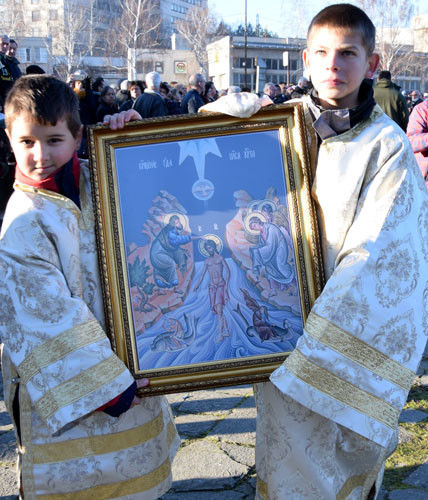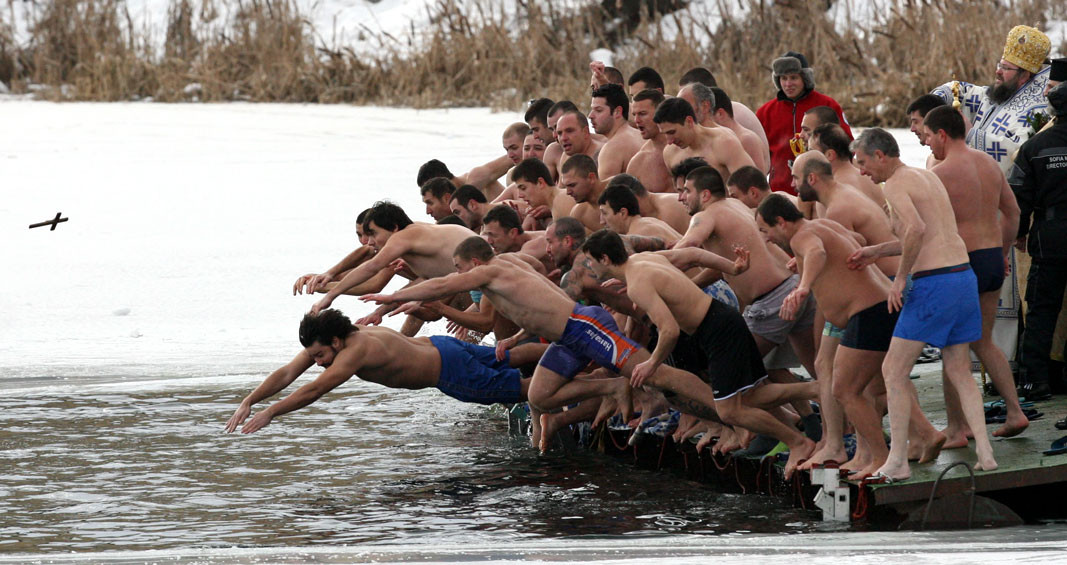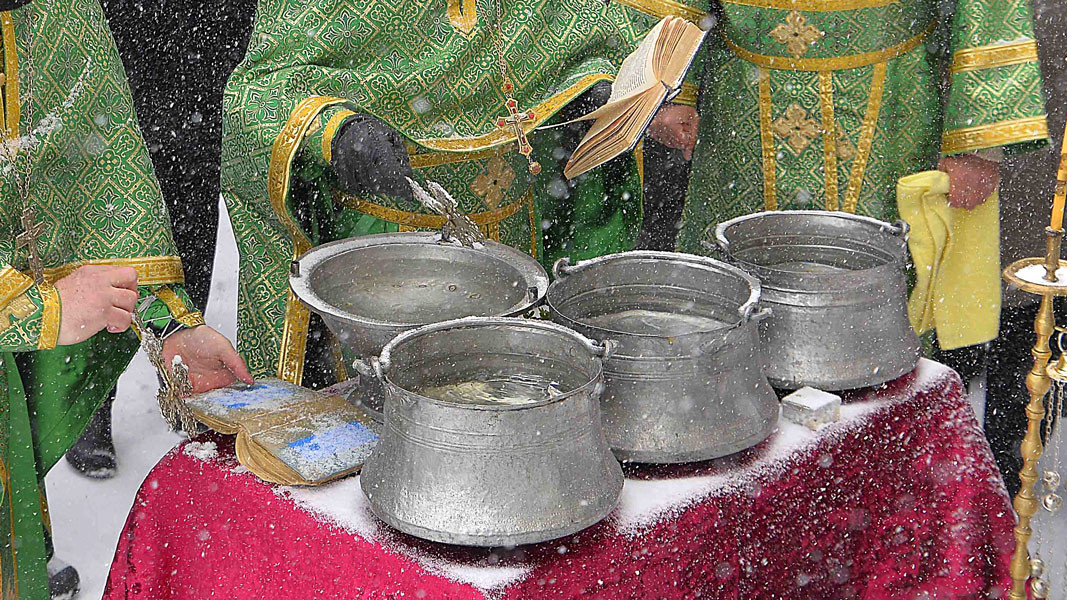Today, January 6, the Bulgarian Orthodox Church marks one of its biggest holidays - Epiphany. According to Christian teachings, on the day of the Baptism of Christ by John the Baptist, all three Persons of the Holy Trinity manifested. When the Savior emerged from the water, the sky opened and the Holy Spirit descended in the form of a white dove, and a voice from heaven said: "This is my beloved Son, in whom I am well pleased." Then, upon seeing the manifestation of the Trinity, thousands were baptized in the holy river. That is why the holiday is called Epiphany.
 On the eve of Epiphany, as well as during the feast the so called Great Sanctification or Jordanian Sanctification takes place. Therefore people believe that Epiphany water has the most powerful, purifying power. Festive liturgies take place in churches. Traditionally, after that the priest leads believers to a nearby river or lake and throws the cross into the water. Men jump into the icy waters to take it out. It is believed that the one who gets the cross first will be healthy and happy throughout the year. It is believed that if weather on this day had clear skies and the cross froze in the water, the year would be healthy and fertile. During the Great Sanctification, all the waters of the earth are symbolically sanctified, so it is believed that water from both springs and drinking fountains is blessed. The Orthodox Church uses Epiphany water to expel spiritual and bodily impurity, while believers drink it to strengthen the spirit and keep some of it in their homes throughout the year.
On the eve of Epiphany, as well as during the feast the so called Great Sanctification or Jordanian Sanctification takes place. Therefore people believe that Epiphany water has the most powerful, purifying power. Festive liturgies take place in churches. Traditionally, after that the priest leads believers to a nearby river or lake and throws the cross into the water. Men jump into the icy waters to take it out. It is believed that the one who gets the cross first will be healthy and happy throughout the year. It is believed that if weather on this day had clear skies and the cross froze in the water, the year would be healthy and fertile. During the Great Sanctification, all the waters of the earth are symbolically sanctified, so it is believed that water from both springs and drinking fountains is blessed. The Orthodox Church uses Epiphany water to expel spiritual and bodily impurity, while believers drink it to strengthen the spirit and keep some of it in their homes throughout the year.
 If one had a certain amount of water from the previous year, it is used to knead three ritual loaves of bread - one for the household, the second for guests, and the third for passersby, as bread is left in front of the house together with a glass of wine.
If one had a certain amount of water from the previous year, it is used to knead three ritual loaves of bread - one for the household, the second for guests, and the third for passersby, as bread is left in front of the house together with a glass of wine.
According to folk traditions, the feast marks the end of the so-called dirty days (December 25 to January 6). The dinner on January 5th consists of Lenten dishes as nuts and raw wheat are present together with sauerkraut, stuffed peppers, beans.
 On January 6, people named Jordan, Dancho, Dana, Boyan, Bogdan, Bogdan celebrate. Traditional Bulgarian rituals include splashing water on all who have a name day on the feast.
On January 6, people named Jordan, Dancho, Dana, Boyan, Bogdan, Bogdan celebrate. Traditional Bulgarian rituals include splashing water on all who have a name day on the feast.
English: Alexander Markov
On the second day after Easter begins Bright Week. It is so called because of the light that Christ's Resurrection brings to the world. According to Orthodox tradition, it is a time when the Holy Apostles and the Virgin Mary are glorified. Bright Week..
Patriarch Daniil celebrated a divine service for the so-called Second Resurrection of Christ in the Sofia-based church of Saint Nedelya. Patriarch Daniil greets Bulgarians with “Christ is Risen” At the festive liturgy, texts from the Gospel..
Patriarch Danil of Bulgaria, Metropolitan of Sofia, greeted the faithful with the joyful words "Christ is risen!" In his Easter message, he called on Orthodox Christians to share the extraordinary joy of heaven with the world through a life of light and..

+359 2 9336 661
